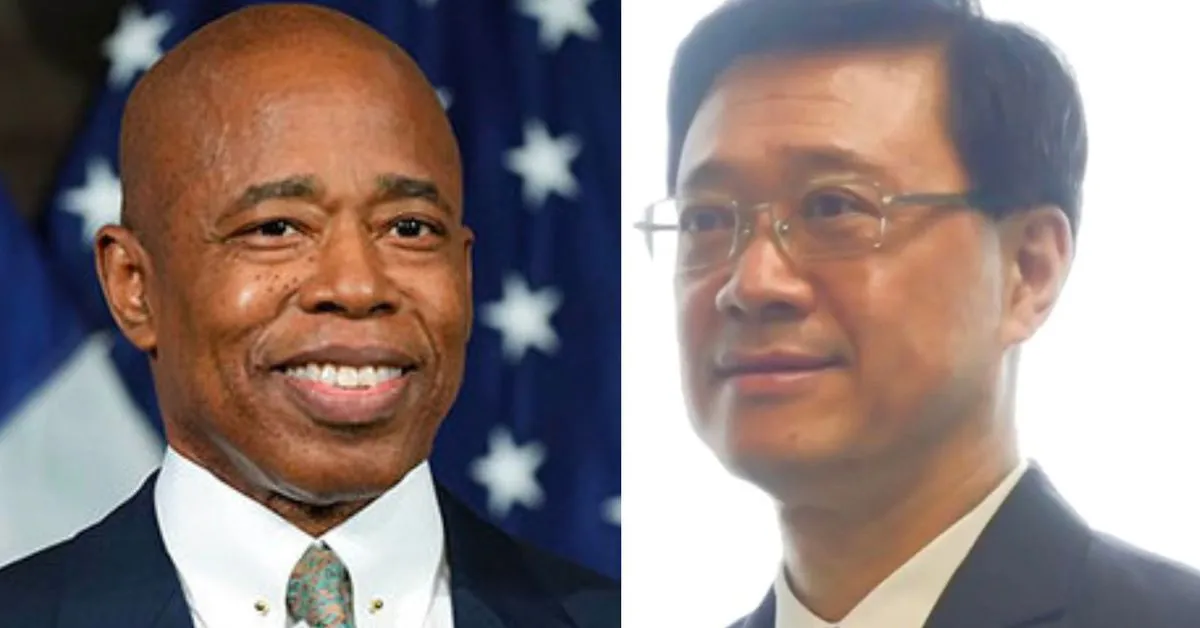Web3 companies are leaving New York…but China and Hong Kong have proven it does not have to be this way. Omer Ozden, Chairman of RockTree Capital
China and Hong Kong have shown the world how to foster Web3 innovation and economic growth. After an 18-month period of hostility, Beijing pivoted and rapidly implemented common-sense regulations in Hong Kong that foster innovation and encourage the sector to grow. This all happened because officials in Beijing listened to and supported Hong Kongers and their leaders, something U.S. securities regulators seem hell-bent on avoiding.
New York City Mayor Eric Adams has embraced Web3 from the beginning, running a pro-crypto campaign and even taking his initial paychecks in bitcoin. This democratically elected official has touted the benefits and actively engaged the industry with a blueprint for the economic recovery of the city, but bureaucrats in D.C. disagree. Currently, a small number of unelected individuals in Washington D.C. are exercising alarming authoritarian power in their seats as regulators, counter to New York’s stated desire to move from antiquated financial systems to digital ones.
In late 2022, Beijing realized the damaging impact of their restrictive policy and decided to dramatically change course. A former monetary policy official from China publicly voiced the view that “banning cryptocurrencies may be practical in the short term but, whether it is sustainable in the long term, deserves in-depth analysis” and stressed the need for developing an appropriate regulatory framework for cryptocurrencies. This dialogue quickly led to the approval of a robust regulatory framework for Web3 that provides clarity for broker-dealers, investors and crypto exchanges while also ensuring there are adequate considerations for the participation of retail investors.
John Lee, the newly appointed executive leader of Hong Kong, consulted with the Web3 industry and developed a plan to eventually turn Hong Kong into a global cryptocurrency hub. He then worked with Hong Kong’s financial regulators to obtain Beijing’s support for his city’s aspirations. This new framework, implemented on June 1, also acts as a testing ground for the future development of regulations and innovation for the rest of China’s Web3 industry – and Hong Kong’s recovery has been noticeably fast.
Unfortunately for New York and the rest of America, regulators in D.C. have decided to decisively suffocate Web3 innovation. The SEC’s regulation by enforcement, and the constant, ominous drone of its position that stablecoins are securities have paralyzed innovators, investors and highly skilled workers. USDC has lost $27 billion in market cap from its peak 12 months ago, or nearly 50%.
As part of Hong Kong’s steps to bring crypto back, regulators have created a stablecoin issuance playbook, and a Hong Kong Dollar-based stablecoin is apparently on the way. There are ongoing discussions of developing a CNH-based stable coin; CNH is the overseas version of China’s Renminbi.
In my experience as an investor in Web2 and Web3, and a decades-long practice as a U.S. securities attorney in New York and China at major international law firms, I have seen that the prompt development of permissive, smart laws from legislators is just as critical as the fast development of intelligent code from engineers in order to foster innovation and growth.
Federal legislators and New Yorkers risk suffering the same consequences from this cautionary tale unless they embrace blockchain. This month, representatives in Congress introduced the SEC Stabilization Act to overhaul the SEC and remove Chairman Gary Gensler for a series of outlined abuses of power. If the unelected chair is unilaterally steering the nation in the extreme opposite direction of the desires of the elected mayor in the most populous city in the country, and the tens of millions of U.S. crypto users, then Adams and his constituents should learn from the experience of Hong Kong and take action now.
